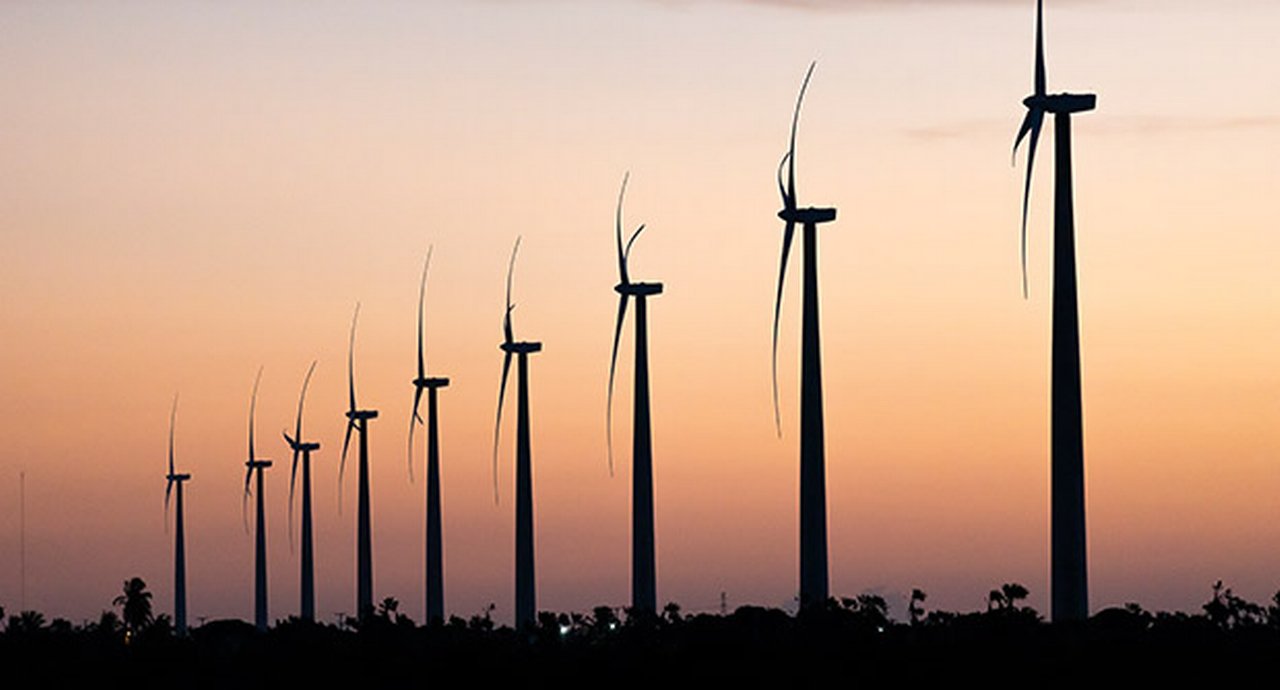15 January 2024
COP28 closed with a consensus to transition away from fossil fuels and some good progress on climate finance. Yet, more finance efforts are needed, and the advent of global carbon markets experienced a setback. flow’s Desirée Buchholz summarises the key takeaways from Dubai
MINUTES min read
The pressure was on: A couple of days before the 2023 UN Climate Change Conference – aka COP28 – kicked off in Dubai, the UN Environment Programme (UNEP) warned that the world is heading for a 2.5–2.9°C temperature rise above pre-industrial levels by end of this century – unless countries step up action and deliver more than promised in their 2030 pledges under the Paris Agreement.1
In order to limit global warming to 1.5°C as set out in the Paris Agreement, the world needs to cut emissions by 42% compared to 2019 levels, UNEP calculated. However, this is unlikely to be achieved because, in fact, until October 2023, average global temperature already was above 1.5°C on 86 days, the organisation warned.2
Thus, expectations on the COP28 President, Sultan Ahmed Al Jaber, Minister of Industry and Advanced Technology and UAE Special Envoy for Climate Change were high – in particular, as it was the first global stocktake summit after the Paris Agreement was signed in 2015. In essence, this meant that the conference had to look at where the world stands on climate action and finance, identifying the gaps, and agree on better course forward to accelerate climate action.3
So, did COP28 live up to these expectations? While opinions on the success of COP28 differ, the conference in Dubai brought major progress in some areas. According to Debbie Jones, Global Head of ESG, Company Research at Deutsche Bank Research and her team, the event's legacy consists of the following three milestones:
- a consensus to transition away from fossil fuels, albeit with caveats;
- the establishment of a loss and damage fund; and
- an endorsement to triple renewable energy capacity by 20304.
“COP28 has shown that the international community is committed to move towards clean energy faster, yet ideas how to achieve net zero diverge”
“COP28 has shown that the international community is committed to move towards clean energy faster, yet ideas how to achieve net zero diverge,” says Lavinia Bauerochse, Global Head of ESG Corporate Bank, Deutsche Bank. “I see notable progress in our conversations around energy transition related technologies and their financing. Conversations have become way more tangible for example on sustainable hydrogen. Still, we all need to accelerate and move quicker.”
Transition away from fossil fuels
Right from the outset of COP28, a key debate was whether fossil fuels were to “phase down” or “phase out” – or if neither were to be agreed. After two weeks of tense negotiations, delegates agreed to “transitioning away from fossil fuels in energy systems, in a just, orderly and equitable manner, accelerating action in this critical decade, so as to achieve net zero by 2050 in keeping with the science”.5
Amongst others, the final global stocktake text also calls on parties to:
- Triple renewable energy capacity globally and doubling the global average annual rate of energy efficiency improvements by 2030;
- Accelerate efforts towards the phasedown of unabated coal power; and
- Accelerate efforts globally towards net zero emission energy systems, utilising zero- and low-carbon fuels well before or by around mid-century6
“We expect future COPs to wrestle with agreement on what the science supports and what is low carbon, including the use of nuclear energy,” Deutsche Bank Research’s Debbie Jones and team write. For example, more than 20 countries, including the US, UK, United Arab Emirates (UAE), France signed a declaration to triple nuclear energy by 2050. Germany, which shut its last three nuclear plants in 2023, refrained from signing.
The global stocktake is considered the central outcome of COP28, and the results will now be used by countries when submitting their new climate action plans (the so-called nationally determined contributions, NDCs) which are due by 2025.
Climate finance: progress, but still not enough
The conference kicked off with an encouraging announcement on Day 1: To mitigate the effects of climate change for developing nations, such as floods or droughts, a loss and damage fund was put into operation. The establishment of such a fund has been a goal among developing countries for more than 30 years and was agreed last year at COP27. Thus, it can be seen as a great success it was finally established.
“Collectively, numbers fell short of the estimated funding needed for mitigation and adaptation needs”
By COP’s conclusion, a total of nearly US$800m was committed to the loss and damage fund by several governments, with the UAE and Germany contributing US$100m each. The critical question, however, will be “how to increase and replenish funding as prevailing estimates suggest the global loss and damage impact from climate change is in the hundreds of billions of dollars per year,” Jones and team observe.
Overall, COP28 received more than US$85bn of financing commitments – with US$62bn specifically dedicated to climate finance. While the team acknowledges the “number of impressive and significant finance pledges” made during the conference, it points out that “collectively, numbers fell short of the estimated funding needed for mitigation and adaptation needs”.
As highlighted in the global stocktake document, adaptation finance needs of developing countries are estimated at US$215-387bn annually up until 2030. Moreover, to be able to reach net zero emissions by 2050, about US$4.3trn per year needs to be invested in clean energy up until 2030, increasing thereafter to US$5trn per year up until 2050.7
Mobilising private capital for climate change
Thus, unlocking more private capital remains a critical aspect to limit global warming. “The deployment of private capital for climate finance still needs to ramp-up significantly, particularly looking at investments into climate adaption and nature-based solutions,” says Bauerochse.
In order to do so, the Net-Zero Banking Alliance was launched in April 2021 and Deutsche Bank was among the initial banks that joined.8 The alliance brings together global banks which are committed to aligning their leading and investment portfolios with net zero emissions by 2050. During COP28, the alliance – amongst others – showcased a US Renewable Energy deal in its latest Progress Update report.9
As lead arranger and joint bookrunner for three project financings from December 2022 to May 2023, Deutsche Bank raised US$670m for a loan facility for Plus Power to construct three fully merchant, utility-scale, battery energy storage projects in Texas totalling 700MW in capacity. Deutsche Bank committed to underwrite a large portion of the facility while syndicating to a large group of lenders pre- and post-closing.10
US$4.3trn
More of these projects need to follow to close the net zero financing gap. Thus, during COP28, the “UAE Leaders’ Declaration on a Global Climate Finance Framework” was put in place to invest US$5–7trn in climate finance annually. It aims to scale up private finance and high-integrity carbon markets and stresses the need for private finance to be unlocked for investments into green infrastructure, sustainable business models and climate technology. Yet, only 13 countries signed the declaration including the US, UK, France and Germany.
Further efforts include the World Bank announcement that it is working with 15 senior representatives of the financial industry to lower the risk of investing in climate projects and to attract private capital by creating a securitisable asset class, mainly through financial guarantees.11 The bank will also devote 45% of its annual financing to climate-related projects for the next fiscal year (07/2024–06/2025), which translates into an additional US$9bn of funding for climate.12
Carbon markets: no progress on global compliance market
Carbon markets are essential to combat climate change as they put a price on emitting greenhouse gases (GHG) and therefore provide an incentive to lower emissions. Yet, there are three different types of markets:
- Regulated carbon reduction schemes, such as the European Union’s Emissions Trading Scheme (EU-ETS). These are driven by mandated caps on greenhouse gas (GHG) emissions for companies in select carbon-intensive industries and governments.
- Voluntary carbon markets where companies and individuals can offset their emissions if they wish to do so. Demand for these credits has been accelerated by net-zero commitments by governments and companies globally.
- The Paris Agreement Article 6 International Transfer Mitigation Outcomes (ITMOs) which refer to the NDC goals defined by each country. They allow the buyer country of a carbon credit to finance lower-cost emissions reductions in another country to meet its own commitment without losing environmental integrity. Seller countries (often a biodiversity rich/rainforest country) can finance domestic mitigation beyond what can be achieved with their own resources.13
Prior to COP28, the European Commission, Spain and France had launched an initiative to build Paris-aligned Carbon Markets. Thus, there was hope that countries would agree on a framework for carbon removals and project methodologies.14
Yet, countries could not agree on a text. “It appears the divisiveness related to a debate over reporting requirements and concerns over confidential information (6.2), as well as disagreement on how to mobilise voluntary markets in terms of connectivity and eligibility (6.4),” Debbie Jones and team state in their Deutsche Bank Research report. The good news is however, that the team expects progress “well ahead of 2029.”
In parallel, the International Organisation of Securities Commissions (IOSCO) proposed measures to help regulators bring more integrity to voluntary carbon markets. To assure supply of high-quality carbon credits, the IOSCO advises to create a quality taxonomy, to introduce requirements for disclosure on the project development process, verification, auditing and the entities responsible for conducting these and to impose criteria for registries to assure their soundness and accuracy.15
In March 2023, the Integrity Council on Voluntary Carbon Markets – an independent government body – had launched its “Core Carbon Principles” (CCPs) – a set of ten principles defining high-quality credits with a focus on governance, emissions impact, and sustainable development.16 This has been regarded as a good starting point in bringing integrity into voluntary carbon markets. Yet, it cannot replace an agreement of carbon credits under art 6.2 and 6.4.
Nature: Deutsche Bank joins BackBlue Ocean Finance Commitment
Nature is playing an ever more important role in discussions around sustainable transformation. “While COP28 won't be notable for biodiversity advancement, foundational work and discussions regarding nature and water continue to increase,” the Deutsche Bank Research team writes. Most notably, Financing plans totalling more than US$2.5bn were announced for projects focused on large-scale forest protection and restoration.
Moreover, Deutsche Bank became the first bank to join the BackBlue Ocean Finance Commitment. This UN initiative aims to catalyse sustainable investments for oceans and coastal resilience. Partners willing to commit must have robust net-zero commitments, appropriate science-based targets, align their policies and disclosures with the Task Force on Climate-related Financial Disclosures, and invest/lend to support ocean-related environmental goals, such as investing US$500m by 2030 for coastal nature.17
Outlook
Now, the focus will shift to COP29 which will take place in Azerbaijan. At this years’ conference, “governments must establish a new climate finance goal, reflecting the scale and urgency of the climate challenge,” the UN Climate Change body sets the tone for COP29.
As pointed out by Deutsche Bank Research, the country has a strong oil and gas culture – just like UAE – “which may feed into concern that momentum behind the 'lighter language lobby' seen at this COP28 will continue”. At the same time, oil and gas producing countries need to make legitimate contributions to the net zero trajectory for future COPs to be successful.
Deutsche Bank Research report referenced:
dbSustainability Spotlight special report: COP28: Top 10 takeaways from Dubai by Debbie Jones, Punyadip Cheema Luke Templeman and James Brand (14 December 2023)
Sources
1 See unfccc.int
2 See unep.org
3 See unfccc.int
4 See dbSustainability Spotlight special report: COP28: Top 10 takeaways from Dubai by Debbie Jones, Punyadip Cheema Luke Templeman and James Brand (14 December 2023)
5 See unfccc.int
6 See unfccc.int
7 See unfccc.int
8 See db.com
9 See unepfi.org
10 See pv-magazine.com
11 See tbsnews.net
12 See reuters.com
13 See blogs.worldbank.org
14 See ec.europa.eu
15 See iosco.org
16 See icvcm.org
17 See oceanriskalliance.org



